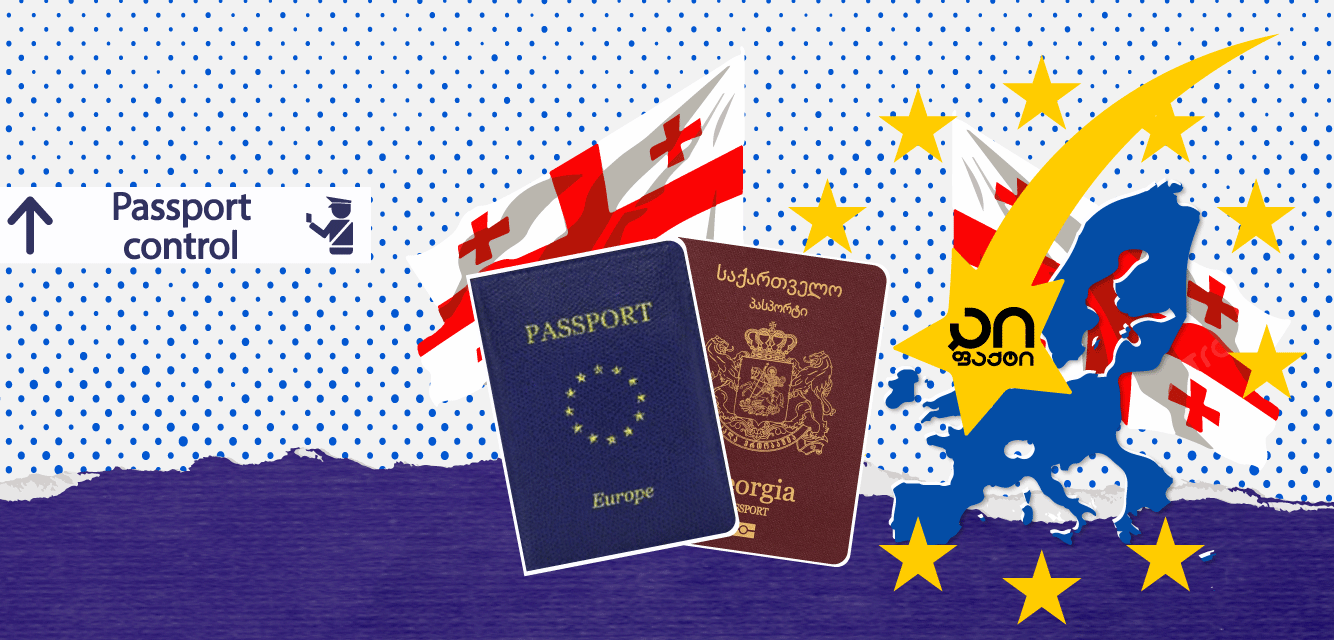by Nino Apakidze
The recent suspension of visa-free travel for Georgian diplomatic passport holders has raised concerns over whether the European Union (EU) may extend this measure to ordinary citizens. With mounting pressure on the Georgian government and new political developments, the question of Georgia’s future in Europe’s visa-free regime has taken center stage.
The Mechanism Behind a Potential Suspension
The EU’s visa liberalization policy allows Georgian citizens to travel to the Schengen area without visas, a privilege granted in 2017. However, since the implementation of simplified visa suspension mechanisms, the EU can now reconsider this policy if certain criteria are not met. Importantly, a unanimous agreement among all 27 member states is not required; a qualified majority—the approval of at least 15 EU member states—suffices to suspend the regime.
The Dutch Foreign Minister, Kaspar Veldkamp, has already called for suspending Georgia’s visa-free regime, citing the violent suppression of protests and human rights concerns. The European Commission has the tools to act if relations deteriorate, particularly regarding the protection of fundamental rights and freedoms.
Despite these developments, there is no consensus among EU policymakers about taking such a drastic step. European leaders appear wary of collective punishment. Rikard Jozwiak, Director of Radio Free Europe’s Brussels Bureau, who has extensive access to EU diplomatic circles, emphasized this concern:
“When I speak to EU diplomats, they clearly say, ‘We really don’t want to harm the people of Georgia. Why should we do this? It’s a very blunt instrument. We want to hurt specific individuals responsible for specific actions.’”
The New Report’s Findings and Conditions
The European Commission’s recently published 7th annual report on the “Visa Suspension Mechanism” outlines critical areas where the Georgian government must act immediately to maintain visa liberalization. The report sets forth clear requirements:
- Protection of Fundamental Rights – Safeguarding freedoms of assembly, association, expression, privacy, and participation in public affairs, while combating discrimination.
- Repeal of Controversial Laws – The laws on “Transparency of Foreign Influence” and “Family Values and Protection of Minors”, adopted this year, are deemed incompatible with EU values.
- Alignment with EU Policies – Adjusting Georgia’s visa and personal data protection legislation to match EU standards.
- Addressing Migration Concerns – Reducing unfounded asylum claims and illegal stays of Georgian nationals in the EU.
- Anti-Corruption Measures – Establishing a dedicated asset recovery office, investigating high-level corruption, and adopting an updated anti-corruption strategy in line with Venice Commission recommendations.
According to Rikard Jozwiak, the report paints a bleak picture for Georgia: “It’s a very bad report for Georgia, and it lists all the reasons to suspend the visa-free regime.”
The Government’s Response—or Lack Thereof
The ruling “Georgian Dream” party has shown little indication that it plans to address the EU’s concerns. The government’s stance became clear when Prime Minister Irakli Kobakhidze announced on November 28 that Georgia would suspend its EU integration process until 2028. This declaration has sparked waves of protests across the country, with citizens from diverse professions and backgrounds rallying to defend Georgia’s European aspirations.
Efforts to obtain comments from the “Georgian Dream” party regarding visa liberalization were unsuccessful, as officials refused to respond.
The EU’s Delicate Balance
Despite the critical findings in the European Commission’s report, experts believe the EU remains reluctant to suspend visa liberalization for ordinary Georgian citizens. The reasoning is twofold: punishing citizens for government actions would be seen as contradictory to the EU’s emphasis on supporting Georgian civil society, and such a measure could provoke even larger protests.
Jozwiak underscored this dilemma: “When [in the EU] they talk about Georgia, they say they need to do more for civil society, more for the people on the streets. It would be strange to say this and then at the same time ban Georgians from entering the EU. That would be contradictory.”
What’s at Stake?
Since visa liberalization was introduced in 2017, Georgian citizens have traveled to the Schengen zone over 2 million times, a testament to the importance of this policy for ordinary Georgians. Alongside the privilege, Georgia assumed obligations to align its visa and migration policies with EU standards and to uphold human rights principles. Failure to fulfill these obligations now risks eroding trust and derailing Georgia’s path toward European integration.
The suspension of visa-free travel for Georgian citizens remains a possibility, but the EU appears intent on using more targeted measures against government officials responsible for recent developments. For now, Georgian civil society’s fight to protect fundamental freedoms and maintain European ties remains the strongest force against potential isolation. The coming months will prove critical as the EU monitors Georgia’s response to its latest demands.










